Cyclo olefin polymers – APR acknowledges Husky’s development in recyclable CSD barrier packaging 09-03-2024
Cyclo olefin polymers
Zeon Corporation has reached a significant milestone with the completion of its recycling plant for cyclo olefin polymers (COP) at the Takaoka Plant
This marks the company’s inaugural venture into recycling its own products, promising both innovation and sustainability. The new facility not only underscores Zeon’s commitment to advancing COP products but also aligns with its vision for a greener future by curbing CO2 emissions.
The completion ceremony, held on March 5 at the plant, was graced by 44 attendees, including dignitaries from Toyama Prefecture, Takaoka City, local councils, and construction personnel. Cyclo olefin polymers
Notable figures such as Zeon Chairman Kimiaki Tanaka, Corporate Officer and Takaoka Plant Manager Tomoyuki Kose, and other company officials were also present.
Initiated in the summer of 2022, the construction of the recycling plant is a response to the burgeoning demand for COP film, prized for its optical stability and low water absorbency. The plant will recycle waste resin generated during COP film processing, a feat previously challenging for conventional recycling methods to maintain quality, transparency, and purity.
Zeon’s pioneering technology has overcome these hurdles, ensuring recycled resin matches the original in quality. With plans to integrate the recycled resin into optical film production, Zeon anticipates meeting sustained market demand while championing environmental stewardship. This endeavor signifies Zeon’s stride towards circularity and sustainable practices in polymer manufacturing. Cyclo olefin polymers
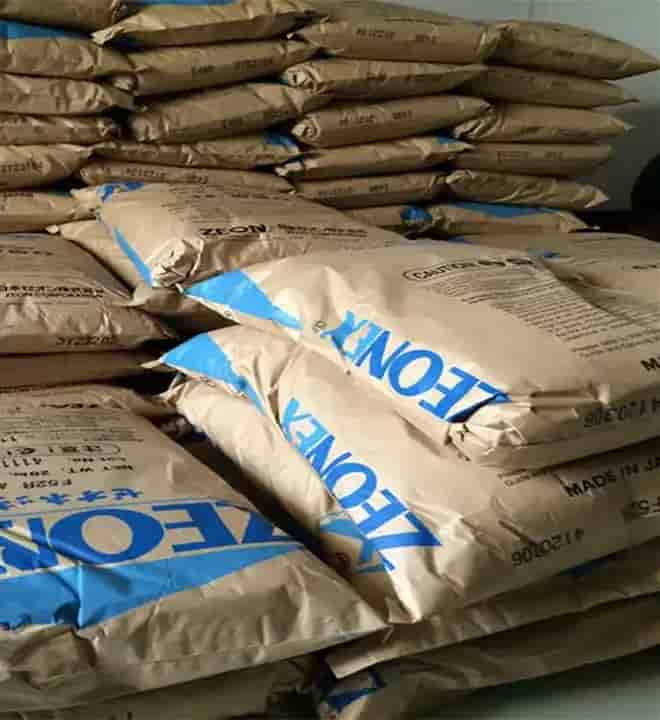
HD Hyundai Chemical, in collaboration with CJ CheilJedang Corp., is set to produce eco-friendly bio-naphtha and plastic products
The partnership, formalized through a memorandum of understanding, entails HD Hyundai Chemical receiving bio-raw materials, including soybean oil and waste cooking oil, from CJ CheilJedang for the production of 12,000 tons of eco-friendly plastic.
The companies have inked a business agreement to establish an eco-friendly bio-circular system at HD Hyundai Chemical’s headquarters in Daesan, South Chungcheong Province. This system will ensure a stable supply of bio-raw materials to HD Hyundai Chemical, which will utilize them to produce bio-naphtha. The resulting eco-friendly plastic will be supplied back to CJ CheilJedang for use in its home meal containers and packaging materials. Cyclo olefin polymers
Initially, HD Hyundai Chemical plans to utilize 400 tons of bio-raw materials to produce the eco-friendly plastic, with the aim of reaching the 12,000-ton milestone by year-end. Notably, this endeavor marks a significant achievement as it secures International Sustainability and Carbon Certification (ISCC) for the entire process, from inputting bio-raw materials to producing bio-naphtha and plastic products.
This milestone reinforces the commitment of both companies to environmental sustainability, with ISCC certification serving as an international validation of their eco-friendly practices. Cyclo olefin polymers
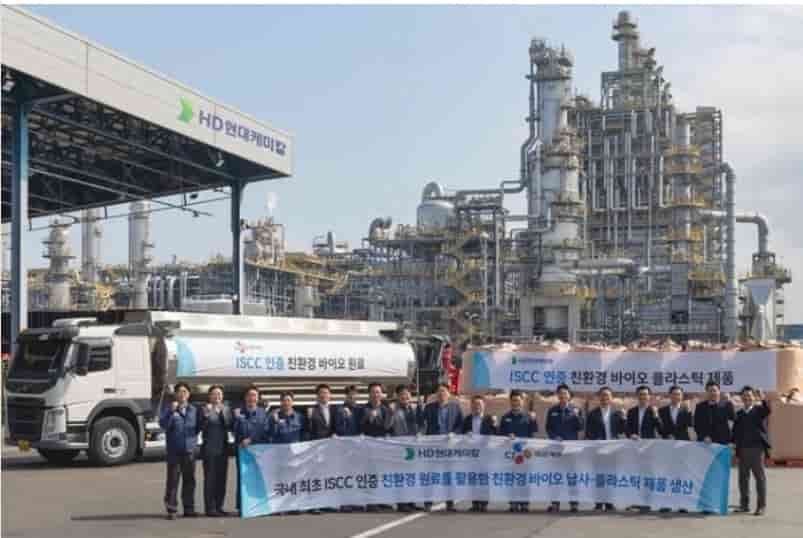
China Set to Lead Global PET Capacity Growth until 2028
In a trajectory set to reshape the global polyethylene terephthalate (PET) landscape, China emerges as the frontrunner, poised to dominate PET capacity additions by contributing an impressive 40% to the total growth expected from new plant constructions and expansion projects by the year 2028.
A closer inspection of the Chinese polyethylene terephthalate PET market reveals two pivotal projects set to significantly contribute to the anticipated surge in capacity. The first, an announced project, is the Zhejiang Petrochemical Daishan Polyethylene Terephthalate Plant 2, boasting a substantial capacity of 2 million tpy. Operated by Zhejiang Petrochemical, which holds a 100% stake, this project is strategically located in Zhejiang, China, with production slated to commence in 2026. Cyclo olefin polymers
In tandem, the Hainan Yisheng Petrochemical Yangpu Polyethylene Terephthalate Plant is poised to add an extra 0.50 million tpy in capacity. Operated by Hainan Yisheng Petrochemical Co Ltd, with complete equity ownership, this plant is expected to commence operations in 2025 in Hainan, China.
The Zhejiang Petrochemical Daishan Polyethylene Terephthalate Plant 2 stands out as a flagship project in China’s pursuit of PET dominance. With a substantial capacity of 2 million tpy, this announced project is strategically positioned in Zhejiang, a key industrial hub. The choice of Zhejiang, known for its economic vibrancy and robust infrastructure, underscores the strategic planning behind China’s Polyethylene Terephthalate (PET) capacity expansion. Cyclo olefin polymers
Zhejiang Petrochemical Co. Ltd’s complete ownership and operation of the plant further emphasize the country’s commitment to controlling its PET supply chain.
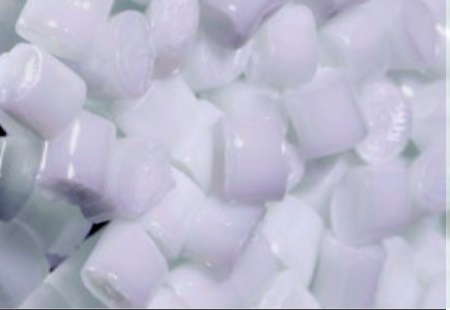
Eastman has partnered with Dentis Group/Nord Pal Plast, a renowned mechanical recycler, to enhance feedstock for its upcoming facility in France
Through a long-term agreement, Dentis will supply 30,000 metric tons annually of rejected PET post-consumer waste from their sites in France, Spain, and Italy to Eastman. These materials, currently lacking circular solutions, will undergo recycling at Eastman’s molecular facility in Normandy.
Corrado Dentis, CEO of Dentis/Nord Pal Plast, emphasized the partnership’s role in reducing PET waste and complementing European plastic recycling efforts.
Brad Lich, Eastman’s EVP and CCO, highlighted the company’s commitment to collaboration and sustainability. The agreement secures over 70% of the feedstock for Eastman’s Normandy plant, including materials typically rejected by mechanical recyclers, reinforcing their dedication to sustainable solutions. Cyclo olefin polymers
Eastman’s Normandy facility, slated to be the world’s largest material-to-material molecular recycling plant, will have the capacity to recycle more than 200,000 tonnes of hard-to-recycle polyester waste annually post-phase 1 and 2. This investment in France underscores Eastman’s commitment to circular economy principles and sustainable practices.
Eastman’s molecular recycling technologies break down hard-to-recycle waste into molecular building blocks, enabling the creation of first-quality materials without compromising performance.
This process ensures materials retain their value across multiple cycles, aligning with Eastman’s vision for a more sustainable future. Cyclo olefin polymers
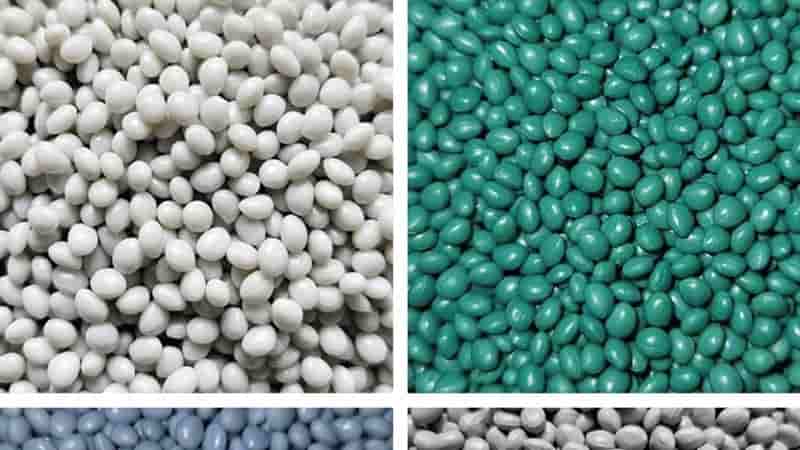
APR acknowledges Husky’s development in recyclable CSD barrier packaging
Husky’s collaboration with Mitsubishi Gas Chemical has advanced our fully recyclable Multi-Layer PET solution for small-format carbonated soft drinks (CSD), earning recognition from the American Association of Plastic Recyclers (APR) for integrating 3.3% MXD6. This surpasses our previous accreditation of 2.5% MXD6 from APR in 2020. Our ongoing development now extends the technology to various bottle sizes, meeting the demand for recyclable barrier packaging across different applications. Cyclo olefin polymers
The APR’s recognition underscores our dedication to sustainability, empowering customers to optimize operations, enhance design circularity, and reduce costs.
Despite PET’s popularity for CSD packaging, its permeability poses shelf-life challenges for smaller formats, often leading to reliance on aluminum cans with their own drawbacks. Husky’s solution strikes a balance between performance and sustainability, accommodating bottles as light as 12 grams with up to 3.3% MXD6 integration.
Key features of our Multi-Layer package include Mitsubishi Gas Chemical’s M6000 series barrier material engineered for CO₂ retention, precise injection into bottle sidewalls, and full recyclability. This innovation reduces PET resin usage, offering cost savings without compromising performance. Husky’s Multi-Layer equipment utilizes high-precision co-injection technology, allowing for tailored functional material placement and maximizing production output while ensuring part quality. Cyclo olefin polymers
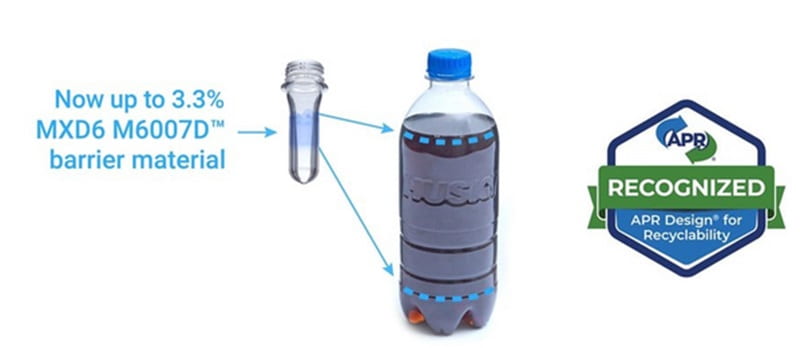
South Korean companies develop tire using chemically recycled PET
The collaboration of SK Chemicals, Hyosung Advanced Materials and Hankook Tire has resulted in high-strength tire cords and tires designed for EVs.
To reduce carbon emissions, three South Korea-based companies say they have developed and commercialized the country’s first tire using chemically recycled polyethylene terephthalate (PET).
SK Chemicals, Hyosung Advanced Materials Co. Ltd. and Hankook Tire & Technology Co. Ltd. say they have successfully developed the electric vehicle- (EV-) exclusive tire, dubbed iON, by applying circular recycled PET fiber tire cords. Cyclo olefin polymers
The companies say circular recycling is an exclusive chemical recycling technology of SK that breaks down scrap plastics through chemical reactions into molecular units and then uses those raw materials to produce recycled plastics.
The three companies collaborated to develop the iON tire over a period of about two years. SK has supplied its SKYPET CR recycled PET, and Hyosung Advanced Materials developed the high-strength recycled PET-based tire cords using SKYPET CR as a raw material. The cords were applied to Hankook Tire’s premium EV tire brand, iON. The tire, with 45 percent sustainable material content, has recently passed reliability verification by a European automotive manufacturer, securing final approval for use and being mounted as tires for new vehicles, according to the companies. Cyclo olefin polymers
“Hankook Tire is continuously conducting R&D (research and development) to use 100 percent-sustainable materials in all tires by 2050,” says Bonhee Ku, executive vice president and chief technology officer at Hankook Tire.
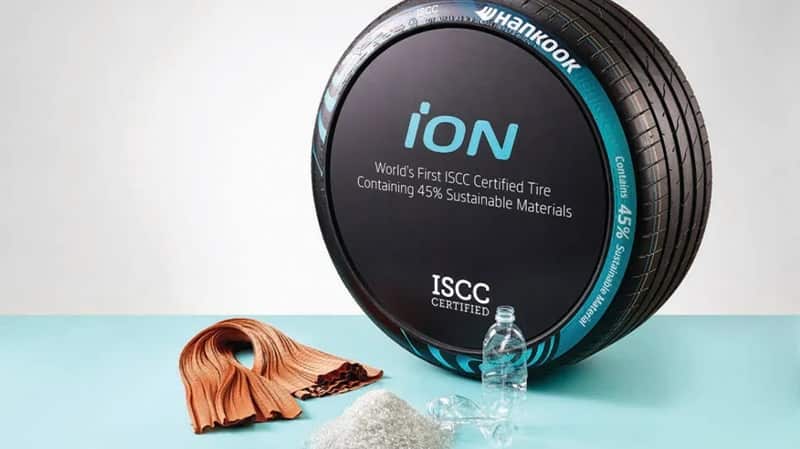
China has reportedly approved the Stellantis-Leapmotor joint venture
China has granted approval for the Stellantis-Leapmotor joint venture, allowing Stellantis to manufacture and market Leapmotor electric vehicles (EVs) globally, except in China. The National Development and Reform Commission (NDRC) gave the green light for the venture, though regulatory clearance in other jurisdictions is pending.
Stellantis’ move to acquire a 21% stake in Leapmotor for $1.6 billion last October signaled its strategic reorientation towards China, the world’s largest automotive market. The subsequent announcement of the joint venture solidified its commitment to this market. Under the terms, Stellantis gains exclusive rights to produce, export, and distribute Leapmotor EVs outside China, marking a pioneering collaboration between a Western automaker and a Chinese EV manufacturer. Cyclo olefin polymers
With a majority ownership of 51% in the joint venture, Stellantis aims to leverage Leapmotor’s technology to develop competitive EV models globally. CEO Carlos Tavares hinted at potential manufacturing locations in Europe, North America, or other markets where affordable EVs are essential to rival Chinese manufacturers.
Neither Stellantis nor NDRC provided comments on the approval. Nevertheless, this milestone underscores the growing collaboration between international automotive players and Chinese EV innovators, shaping the future landscape of electric mobility.
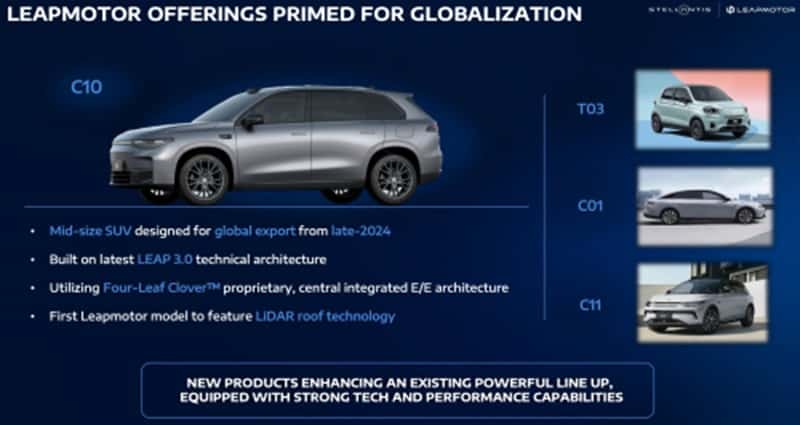
Cyclo olefin polymers
